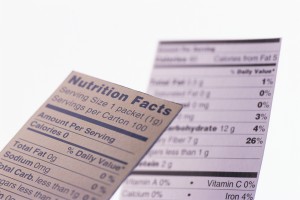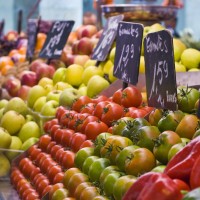I am frequently amazed at how confused many people are about nutrition. The biggest problem in our modern world is that we are so far removed from the source of our food. I don’t mean removed from a supermarket where there is a constant supply of food, but how far removed we are from understanding the seasonal impacts and production processes of the food we eat.
As a result of these disconnections with our food sources, I see many mistakes made by people who haven’t realised the negative impact of these mistakes on their health. This is especially evident in individuals striving to lose weight or improve fitness. They often commit serious nutritional mistakes and don’t realise the magnitude of these mistakes, nor how these mistakes are preventing them achieving their health and fitness goals.
The following is a list of nutritional mistakes that I have collated from working with clients over the past 20 years to improve health and fitness, and reduce body fat. Ask yourself if you’re committing any mistakes from the following list, and start addressing them today to improve your health and wellbeing.
 1. Eating sugar.
1. Eating sugar.
The most insidious ingredient in modern food is sugar. Processed, refined, and crystallised from the fibrous stalks of sugar cane, it is consumed in high volume in our modernised, Western diet. The impact to your health and weight is disastrous – sugar has been scientifically linked to many degenerative diseases including type 2 diabetes.
2. Introducing “fat free” foods into your diet.
These food products have been processed to reduce the amount of saturated fat, BUT then sugar is often added to improve the taste! Without going into the details of biochemistry, the net impact of this sugar-for-fat substitution in “fat free” foods is that you are more likely to gain weight, due to the rapid spike in blood glucose levels after you consume these sugary foods. “Fat free” food products are refined, high in sugar, and must be avoided at all costs.
3. Relying on food marketing for your nutritional advice.
 The marketing of food products is designed to motivate you to buy. Be cautious of the slogans that represent unhealthy food as being nutritious! Marketing of food products can be misleading and can cause you great confusion. You must analyse food labels very carefully; if it is packaged, it probably is unhealthy for you. Here are some common misleading food marketing slogans: “all natural”, “100% guilt free”, “fat free”, and “home-made recipe”. The latest buzz words in food marketing for you to be wary of are “organic” and “gluten free”. While these products are guaranteed to be organic or gluten free, the food product itself may still be highly processed and laden with sugar – therefore NOT healthy for you.
The marketing of food products is designed to motivate you to buy. Be cautious of the slogans that represent unhealthy food as being nutritious! Marketing of food products can be misleading and can cause you great confusion. You must analyse food labels very carefully; if it is packaged, it probably is unhealthy for you. Here are some common misleading food marketing slogans: “all natural”, “100% guilt free”, “fat free”, and “home-made recipe”. The latest buzz words in food marketing for you to be wary of are “organic” and “gluten free”. While these products are guaranteed to be organic or gluten free, the food product itself may still be highly processed and laden with sugar – therefore NOT healthy for you.
4. Consuming processed carbohydrates.
These are foods such as breads, pasta, cakes, and biscuits. They reflect a large proportion of the typical Western diet, yet they are incredibly disastrous to your health (and waistline!). These food products are manufactured from high-level food processing, which breaks down the original forms of food, from their original whole state into a highly refined product. Processed carbohydrates are broken down rapidly within your stomach and then quickly spike your blood glucose levels after consumption.
5. Drinking red wine for health reasons.
 The persistent hype surrounding the antioxidant properties of red wine only tells half the story. Yes, red wine does consist of antioxidants…BUT, the alcohol within the wine means this is an unhealthy way to get your antioxidants. There are much better sources of antioxidants; sources which contribute to your good health. I frequently see people consume red wine (often in copious volumes!) whilst telling themselves it is healthy. Avoid this same mistake! Consumption of red wine gives you “empty calories”, which means there is NO nutritional value and you will gain weight. Instead, eat a piece of fruit or drink green tea to get an equal measure of antioxidants.
The persistent hype surrounding the antioxidant properties of red wine only tells half the story. Yes, red wine does consist of antioxidants…BUT, the alcohol within the wine means this is an unhealthy way to get your antioxidants. There are much better sources of antioxidants; sources which contribute to your good health. I frequently see people consume red wine (often in copious volumes!) whilst telling themselves it is healthy. Avoid this same mistake! Consumption of red wine gives you “empty calories”, which means there is NO nutritional value and you will gain weight. Instead, eat a piece of fruit or drink green tea to get an equal measure of antioxidants.
6. Consuming excessive carbohydrates at night.
Carbohydrates are important to provide you with energy for activity and to fuel your brain. But you need this energy during the day when you are physically active, not before you are about to sleep. The typical Western diet loads excessive carbohydrate into the evening meal with bread, pasta, rice, etc. Aside from the processed nature of these foods, these foods provide too much carbohydrate at the “inactive” end of the day. Eat more of your carbohydrates at breakfast and lunch when you need the energy, and consume a protein-focused meal at dinner with loads of fresh vegetables and/or salad.
7. Thinking that 3 square meals each day are enough.
Your mum probably taught you to eat 3 meals a day. The problem with this old adage is it leaves big gaps between meals, often gaps of many hours without food consumption. If you want to lose weight and be healthier, you need to consume less food, more frequently. Rather than eating three meals per day, eat five smaller meals to keep your metabolism ticking over. The key with eating five meals is to still eat your recommended kilojoules per day, but to spread them out over five meals. Think of your metabolism like an open fire. You need to keep stocking the fire with a few logs at a time to keep it burning brightly, rather than stacking it full of wood and leaving it unattended for hours. In the same way, you should keep “stocking” your metabolism with small but regular meals.
Brendan Rigby is an exercise physiologist and the owner of Inspire Fitness for Wellbeing in Balwyn North. Inspire Fitness is a personalised gym with personal trainers and exercise physiologists – providing you with a holistic health approach to your exercise and training.
